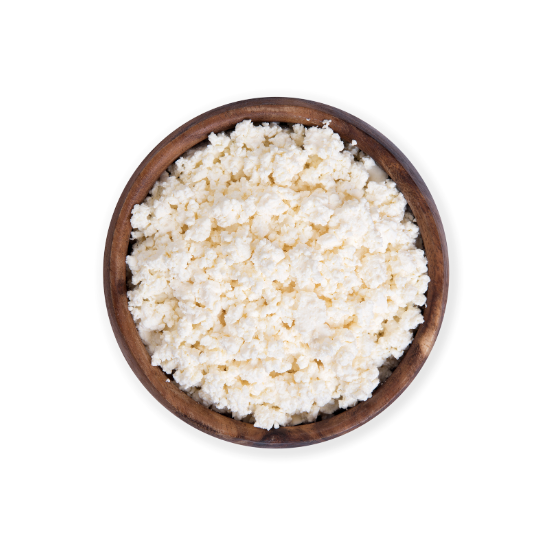Cottage cheese, with its creamy texture and versatility, is a protein-packed favorite in many households. It can be a delightful addition to salads, a tasty filling for baked dishes, or a simple, healthy snack. For individuals with gluten sensitivities or celiac disease, the question arises: Is cottage cheese gluten-free? In this blog post, we’ll explore the gluten-free status of cottage cheese, its ingredients, and how to make informed choices to include it in your gluten-free diet.
Understanding Cottage Cheese:
Cottage cheese is a fresh cheese made from the curds of cow’s milk. It undergoes minimal processing and is known for its lumpy texture, which adds a unique creaminess to various dishes. Cottage cheese comes in different varieties, including low-fat, full-fat, and flavored options, making it a versatile ingredient for both savory and sweet recipes.
Examining the Ingredients:
To determine whether cottage cheese is gluten-free, it’s essential to investigate its primary components:
- Milk: The main ingredient in cottage cheese is milk, which is naturally gluten-free.
- Cultures: Some cottage cheese recipes incorporate live cultures, such as Lactobacillus acidophilus, to aid in the fermentation process. These cultures are gluten-free.
- Acid: To curdle the milk and create the curds in cottage cheese, an acid source like vinegar or lemon juice is used. These acid sources are gluten-free.
- Salt: Salt is commonly added to enhance flavor and is gluten-free.
- Stabilizers: Some commercial cottage cheese products may include stabilizers or thickeners, such as guar gum or xanthan gum, to improve texture and consistency. These stabilizers are typically gluten-free, but it’s essential to verify the specific ingredients.
The Gluten-Free Status of Cottage Cheese:
In its purest form, cottage cheese made from milk, cultures, acid, and salt is naturally gluten-free. However, the gluten-free status of cottage cheese can vary depending on additional ingredients and processing methods used by different brands. Here’s how to ensure you’re selecting gluten-free cottage cheese:
- Check the Label: When purchasing cottage cheese, read the product label carefully. Look for any statements about gluten content or cross-contamination.
- Choose Plain Varieties: Flavored cottage cheese products may include added ingredients, some of which could contain gluten. Opt for plain or unflavored cottage cheese to minimize the risk of gluten exposure.
- Contact the Manufacturer: If you have concerns about a specific brand or product, contact the manufacturer directly for information about their gluten-free practices.
- Homemade Cottage Cheese: For absolute control over ingredients, consider making your cottage cheese at home using fresh milk and acid (like vinegar or lemon juice).
Cottage cheese, in its basic form, is a naturally gluten-free and protein-rich dairy product that can be a valuable addition to your gluten-free diet. To enjoy cottage cheese with confidence, be diligent about reading product labels, choosing plain varieties, and verifying ingredients with manufacturers if necessary. With these considerations in mind, you can continue to savor the creamy goodness of cottage cheese while staying gluten-free and nourishing your body with its nutritional benefits.
